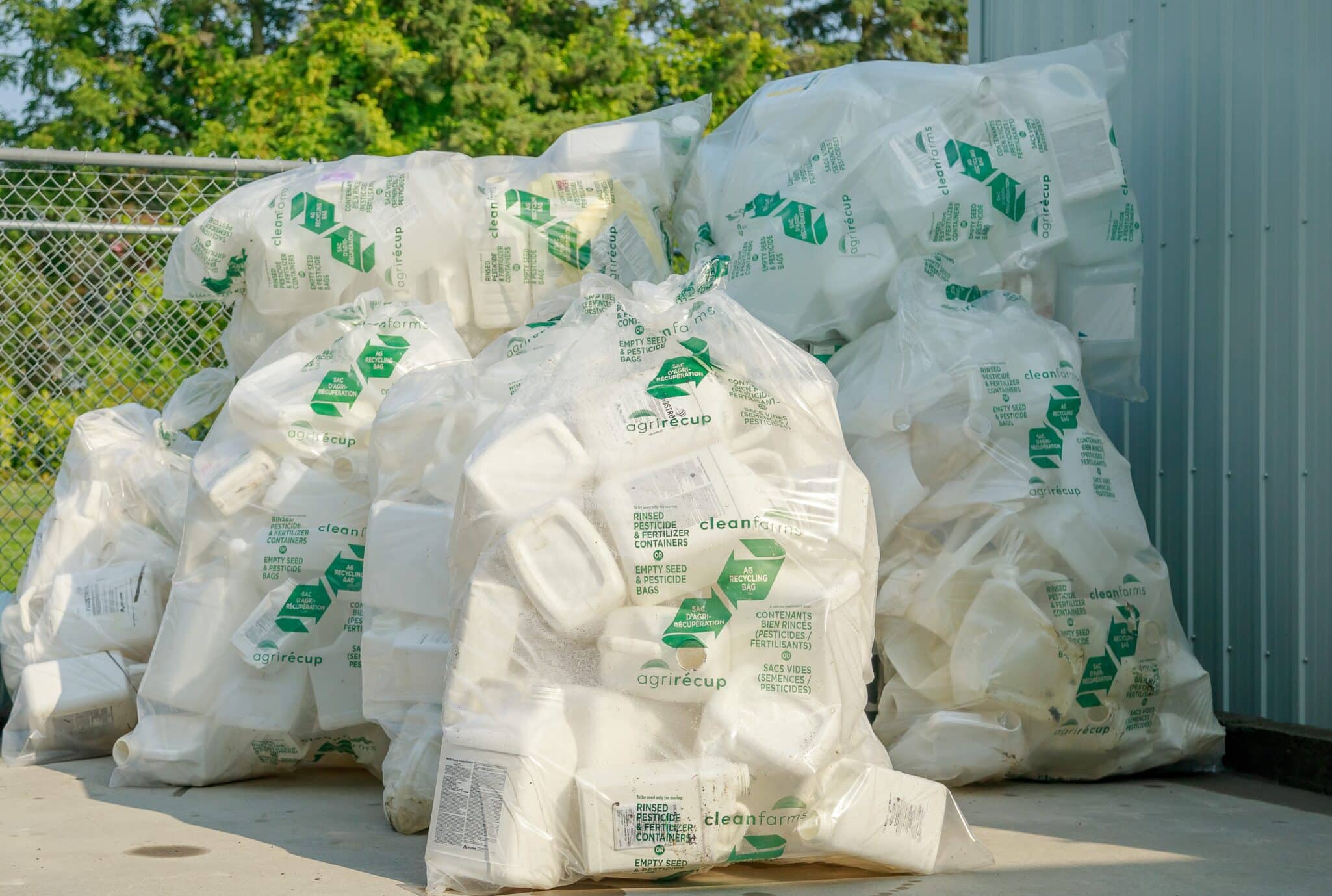Key Takeaways
- The Government of Alberta approved a two-year extension of the Alberta Ag-Plastic. Recycle It! pilot program.
- Cleanfarms continues to operate the program in partnership with the Agricultural Plastics Recycling Group (APRG).
- More than 4.9 million kg of agricultural plastic has been recycled since 2019.
- Renewed funding supports expansion to include silage plastic and bale wrap in targeted regions.
- Program data will inform the design of a future permanent recycling system in Alberta.
Cleanfarms Continues Alberta Ag-Plastic. Recycle It! Pilot Under Renewed Funding
The Government of Alberta has renewed its funding and approved a two-year extension of the Alberta Ag-Plastic. Recycle It! pilot program, ensuring its continuation through 2027. Launched in 2019, the program provides Alberta farmers with practical solutions to manage used agricultural plastics, including plastic baler twine and grain bags.
The pilot was developed by the Agricultural Plastics Recycling Group (APRG), a coalition of recyclers, commodity groups, farmers, municipalities, and non-profit organizations. Cleanfarms operates the program in partnership with APRG, with a shared objective of advancing responsible agricultural plastics management across the province.
Program Expansion to Silage Plastic and Bale Wrap
The renewed funding will support an expansion of the program to include the collection of used silage plastic and bale wrap in targeted regions of Alberta. These materials are widely used by cow-calf operations, cattle feeders, and dairy farms.
It is estimated that up to 3,350 tonnes of bale wrap and silage plastic are used annually in Alberta. Insights gathered through this expansion will be used to inform the design of a future province-wide collection system for these materials.
Cleanfarms Program Shows Strong Farmer Participation
Since its launch, Alberta farmers have returned more than 4.9 million kilograms of agricultural plastic to collection sites for recycling. This volume is equivalent to approximately 260 semi-trailers of grain bags and 38 semi-trailers of baler twine, or enough twine to wrap an estimated 1.8 million large square hay bales.
“Alberta Agriculture’s ongoing support of the pilot has allowed farmers to adopt more sustainable practices for plastic waste, while also helping to determine what an effective permanent program may look like,” said Assar Grinde, Chair of the APRG. “The pilot has had great success with grain bags, and we are excited to build on the huge growth in twine collection volumes over the past year.”
Community Engagement Through the Great Twine Round-Up
The renewed funding will also support the second edition of the Great Twine Round-Up, a collection contest encouraging the recycling of used baler twine. The initiative awards cash prizes to local charities and 4-H clubs. During its first year, participants collected an estimated 16,500 kg of used baler twine.
“We’re proud to be working with the APRG, the Government of Alberta, Alberta Beef Producers, and Alberta’s ranchers and producers to continue evolving this program,” said Shane Hedderson, Director of Western Canada at Cleanfarms. “Our goal is to support farmers while contributing to the emerging circular economy in Alberta agriculture.”


